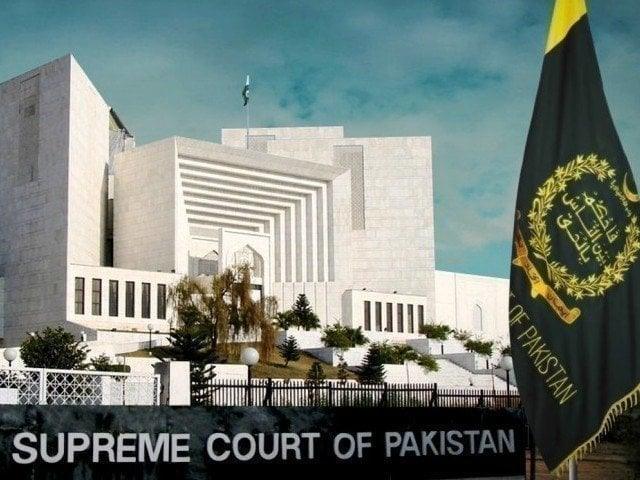The Supreme Court of Pakistan’s Constitutional Court has noted the legal and constitutional complexities surrounding the trials of civilians in military courts over their alleged involvement in the May 9 attacks.
The seven-judge bench, headed by Justice Aminuddin Khan, heard the appeals challenging the military trial.
Judge Jamal Mandokhail emphasized that crimes committed during the May 9 incidents cannot be denied, but the critical issue remains the jurisdiction of the trials.
“The question is not whether a crime has been committed but where the trial should be conducted,” Justice Mandokhail observed.
The discussion centered on the 21st Amendment, which established the framework for military tribunals.
Justice Mandokhail pointed out that the amendment specifically prohibits the cases of political parties from being heard by military courts, raising concerns about the application of martial law to civilians.
Defending the government’s stand, Khawaja Haris, lawyer for the Ministry of Defence, argued that the Army Act and its rules ensure a fair trial.
He cited earlier cases, including the Supreme Court’s Liaqat Hussain judgment, to justify the use of military courts.
However, the bench sought clarification as to whether this is consistent with constitutional principles.
Judge Musarrat Hilali highlighted the public fear and chaos during the events of May 9, including incidents of arson, looting and attacks on government properties.
She questioned the outcome of trials for crimes such as theft and property damage unrelated to military installations.
Justice Hasan Azhar Rizvi drew attention to the seriousness of the attacks, citing the burning of the Lahore Corps Commander’s residence and coordinated assaults across several cities.
“These were not ordinary protests but targeted attacks against state security,” he said, referring to evidence presented by the Defense Ministry, including photographs of the destruction.
The Ministry of Defense argued that military courts focus on cases involving violence against sensitive and restricted areas.
However, Judge Rizvi questioned whether the civilians involved were given their full constitutional rights, including access to appeal mechanisms.
Justice Ayesha Malik expressed reservations about specific provisions of the Army Act, such as Sections 2(1)(d)(1) and 2(1)(d)(2), arguing that they may conflict with the principles on fair trial.
She questioned whether adequate notice and representation was given to civilians convicted under these sections.
Justice Muhammad Ali Mazhar further raised questions about the dual jurisdiction of military and civilian courts.
He asked whether offenses involving both military personnel and civilians are tried separately and whether the evidence presented distinguishes between criminal intent and political dissent.
Khawaja Haris reiterated that the May 9 incidents were not mere acts of protest but deliberate attempts to undermine the security of the state.
“Political activity has its limits. When state property is attacked, it is no longer politics, but a criminal act,’ he argued.
The Ministry of Defense also presented video evidence of armed civilians attacking military sites.
Judge Hasan Rizvi asked if the evidence showed any casualties or injuries to military personnel, to which Haris replied in the affirmative, stating that armed attacks led to injuries and damage.
The bench appeared divided on the wider implications of military trials. Judge Mandokhail questioned why similar attacks on institutions such as Parliament were not tried in military courts, and called for consistency in the application of the law.
The hearing ended with the court adjourning the matter until Monday, giving time for further deliberations.
Justice Aminuddin Khan assured that the bench would dedicate a full day to the case, with Khawaja Haris requesting an extra day for preparation.



